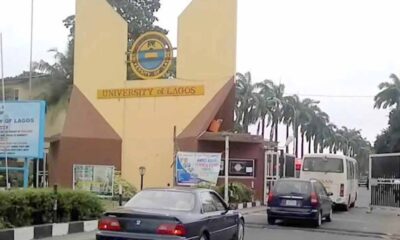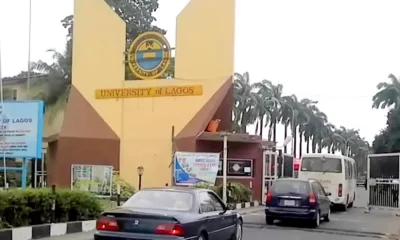News
Blame NANS for hike in varsities’ school fees – Prof Voncir
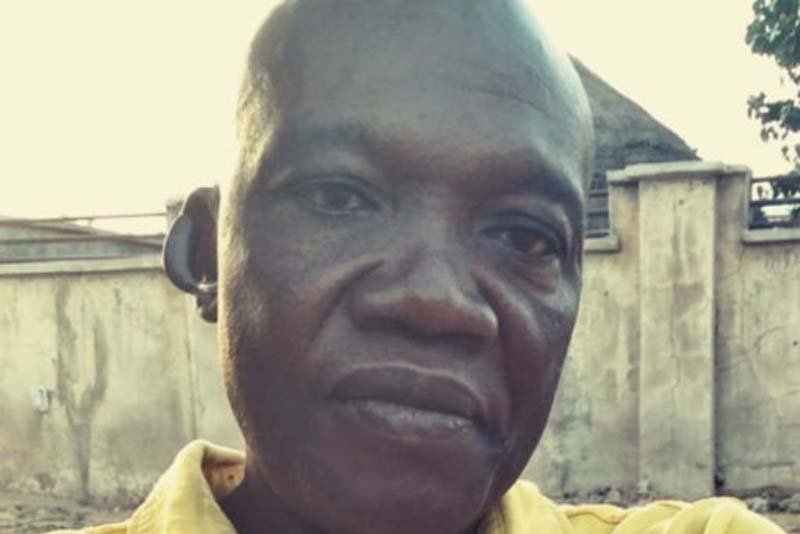
Blame NANS for hike in varsities’ school fees – Prof Voncir
A professor at the Abbakar Tafawa Balewa University, ATBU, Bauchi, Nanmwa Voncir, has slammed students union representatives in the country for failing to stop hike in school fees of public universities.
The former ASUU Chairman ATBU and Zonal Coordinator, Bauchi Zone, also criticized the federal government’s claim that there was no money to fund education.
Majority of students from poor background stand the risk of dropping out of school following recent increase in school fees by managements of public universities.
Voncir, who spoke during the presentation of scholarship awards to 19 undergraduates by ASUU in Bauchi Zone on Saturday, argued that representatives of students in the country like the Nigerian Association of Nigerian Students (NANS) lack the courage to stop injustices against students.
He urged NANS and other students bodies in the country to team up with ASUU to ensure that universities were properly funded and to prevent policies that are detrimental to students.
He said the students’ representatives’ compromising attitude led to the introduction of anti-students policies by the federal government and managers of tertiary institutions.
The scholar believed that the federal government often exploit the weakness of students’ representatives and when it comes to the issue of funding education, often makes excuses but spends billions on politics and other frivolities.
READ ALSO:
- Talks still ongoing for release of deposed Niger President Bazoum – FG
- Immigration CG orders investigation into Passport racketeering
- Obasanjo, Jonathan, others to receive N13.8bn maintenance allowance
“How can you say that there is no money to fund education yet you have money for the gullible activities of our leaders?” he asked.
“Recently they are buying cars for members of the National Assembly at N160 million per person.
“Somebody stole money in this country, we were able to raise alarm only on N109 billion and they say the man is asking for plea bargain.
“Plea bargain means that you give part of the money to government and hold part of it.
“And the man has been given a chieftaincy title. That is our country. And nobody talks.”
He expressed disappointment that the leaderships of students bodies have sold out in the struggles hence the recent arbitrarily increase in school fees of universities a across the country.
Voncir recalled that in 2021, ATBU wanted to increase charges or school fees but ASUU as usual opposed the idea while the leadership of the students union shamelessly supported the move.
“I was asked by ASUU Chairman ATBU branch to represent the Union in a committee by the University management.
“At the inauguration I told the Vice Chancellor that forever ASUU will never stand by any increase in school fees if your aim is to increase.
“The Vice Chancellor said the fees may even be reviewed downward that was why the committee was set up.
“When we started the student president that was inside that committee said let’s increase this school fees but let’s give the students time.
READ ALSO:
- There’s nothing hopeful around proposed 2024 budget – Ogundare
- Stakeholders seek Islamic financing for primary healthcare
- Ararume talks tough, says Tinubu disobeying court’s order
“I called him an idiot. The President of the student Union of the school. I, a professor standing here saying I oppose increase in school fees and you a student standing here and saying you want increase but should be given time?
“I expected him to say students will not take any increase in school fees and sit down. That is the kind of leadership that we we have in the various campuses as students’ union representatives.
“Student unions do elections with guns. You go to NANS conventions and you see guns everywhere as if we have war situation.
“That is what Nigeria students are.
“In this school (ATBU) in 1984 and till 1990 when I graduated, students were the ones leading.
” For any day in ATBU that there was no electricity, we proclaimed that there would be no test the following day for anybody.
” Students go to class and any lecturer that set test students would not write the test.
“If there is no water then we are not going to class. Today there is no water you see students carrying water roaming around the streams, wells to find water.
“You want ASUU to come and fight that there should be water for you? You want ASUU to come and fught that there should be light? Nigerian students wake up Parents wake up”, he said.
Blame NANS for hike in varsities’ school fees – Prof Voncir
News
Nigeria to reduce electricity supply to Niger Republic, Benin, Togo

Nigeria to reduce electricity supply to Niger Republic, Benin, Togo
Not more than six per cent of total electricity from the national grid will be supplied to cross-border customers in Benin Republic, Niger and Togo.
The Nigerian Electricity Regulatory Commission (NERC) gave this directive to the System Operator (SO), a department in the Transmission Company of Nigeria (TCN).
NERC said this was done in a bid to increase power availability to Nigerians.
This is coming as the Minister of Power, Adebayo Adelabu, has reportedly disclosed that the Federal Government and the Nigerian Sovereign Investment Authority (NSIA) would make capital injections of N750 billion and N250 billion annual debt financing to bridge the huge electricity metering gap in the country that currently stands at about seven million, according to a ThisDay report.
These details are contained in a document tagged: ‘Interim Order on Transmission System Dispatch Operations, Cross-border Supply and Related Matters’.
The power sector regulator stated that the directive would last for six months in the first instance before a review.
Nigeria supplies a portion of the electricity it generates to some of its neighbours such as the Benin Republic, Niger Republic and Togo.
NERC’s order, dated April 29, 2024, and which became effective from May 1, 2024, was signed by the commission’s Chairman, Sanusi Garba, and Vice Chairman, Musiliu Oseni.
The electricity sector regulator stressed that following the implementation of the April 2024 supplementary order, the commission had observed sub-optimal grid dispatch operation practices.
READ ALSO:
- Edo, Delta areas to experience two-week power outage – TCN
- Coastal highway project to disrupt DStv, GOtv services
- Former Minister of Education Gbagi dies at 62
It argued that this had compromised the Distribution Companies’ (Discos) ability to deliver on its Service Based Tariff (SBT) committed service levels to end-use customers with a significant impact on market revenues.
NERC said the system operator’s sole reliance on limiting Discos’ load off-take/allocation in managing recurring grid imbalances while prioritising international off-takers and Eligible Customers (ECs) is neither efficient nor equitable.
The practice so far adopted by the operator in managing generation availability, it said, had caused significant hardship to Discos’ customers, comprising industrial, commercial, and residential, especially during peak demands while prioritising delivery to other bilateral contracts, including export to international customers.
“The commission hereby orders as follows: The system operator shall develop and present to the commission for approval within seven days from the issuance of this order a pro-rata load-shedding scheme that ensures equitable adjustment to load allocation to all off-takers — Discos, international customers, and eligible customers — in the event of a drop in generation and other under-frequency related grid imbalances necessitating critical grid management.
READ ALSO:
- Russia adds Zelensky to ‘wanted’ list of criminals
- Iheanacho eyes Aston Villa, turns down Leicester’s £65k weekly offer
- 1966 coup: Ohanaeze denies apology to Fulani
“The system operator shall implement a framework to log and publish hourly readings and enforce necessary sanctions for violation of grid instructions and contracted nominations by off-takers in line with the grid code and market,” it stated.
Among others, it further directed that the system operator shall publish and notify all market participants and the commission of the previous day’s hourly log readings of off-take by market participants and the market settlements report by 12:00 noon of the next day.
“The system operator shall ensure that the maximum load allocation to international off-takers in each trading hour shall not be more than six per cent of the total available grid generation.
“The aggregate capacity that can be nominated by a generating plant to service international off-takers shall not be more than 10 per cent of its available generation capacity unless in exceptional circumstances a derogation is granted by the commission.
“The system operator shall henceforth cease to recognise any capacity addition in bilateral transactions between a generator and an off-taker without the express approval of the commission,” it added.
It urged the system operator and TCN to immediately initiate and install integrated Internet of Things (IoT) meters at all off-take and delivery points of eligible customers, bilateral supplies, cross-border trades, and outgoing 33kV feeders of the Discos to provide real-time visibility of aggregate off-take by grid customers.
“The installation of and streaming of data from the IOT meters should be completed within three months from the date of this order,” it added.
Nigeria to reduce electricity supply to Niger Republic, Benin, Togo
News
Edo, Delta areas to experience two-week power outage – TCN

Edo, Delta areas to experience two-week power outage – TCN
The Transmission Company of Nigeria (TCN) has announced a two-week power outage starting on May 4 in parts of Edo and Delta states.
In a statement released in Benin by Ndidi Mbah, the General Manager of Public Affairs at TCN, it was revealed that the outage is necessary for the safe erection of two 132KV transmission towers at the Amukpe substation.
Benin DisCo will not receive bulk power supply during this period through several feeders, including Adeje, Industrial Woodland, Mosogar, Sapele, and Abraka.
“The Transmission Company of Nigeria (TCN), hereby states that it will commence the erection of two number 132kV transmission towers at its Amukpe Transmission Substation.
”And will equally restring a portion of the Benin-Delta and Delta-Oghara 132kV double circuit transmission lines from Saturday, May 4 to May 17, 2024.
READ ALSO:
- Coastal highway project to disrupt DStv, GOtv services
- Former Minister of Education Gbagi dies at 62
- Russia adds Zelensky to ‘wanted’ list of criminals
“Consequently, Amukpe Substation will be out of power for the work.
“Also, there will be no bulk power supply to Benin DisCo (BEDC) through the following feeders: the Adeje, industrial Woodland, Mosogar, Sapele and Abraka feeders.
“The outage is necessary to create a safe working environment for the contractor. Completion of the projects will establish N-1 redundancy, which would enable TCN to supply bulk electricity to the substation from either the Benin or Ughelli transmission line.
“This means that when one transmission line is faulty, bulk electricity can still be received in the substation from the second line,” Mbah said.
These developments, once completed, will ensure a more reliable and flexible bulk power supply through the Amukpe transmission substation.
It’s important to note that BEDC is responsible for the retail distribution of electricity in Delta, Edo, Ekiti, and Ondo States, covering an area of 57,353 square kilometres.
Edo, Delta areas to experience two-week power outage – TCN
News
Coastal highway project to disrupt DStv, GOtv services

Coastal highway project to disrupt DStv, GOtv services
Ongoing construction of Lagos-Calabar coastal highway will disrupt DStv and GOtv services with effect from today Sunday May 5, MultiChoice has alerted.
The company has sent out a notice to this effect to its customers, telling them to expect disruption in service from Sunday, May 5 to Tuesday, May 7 due to the the Lagos-Calabar coastal highway.
In a notice shared on social media, MultiChoice however assured its customers that its technical team would be working to relocate its facility and minimise service disruptions during the process.
The statement read, “Our uplink facility will be impacted by the ongoing Lagos-Calabar Coastal Road construction project. As a result, we are forced to relocate.
READ ALSO:
- Former Minister of Education Gbagi dies at 62
- Russia adds Zelensky to ‘wanted’ list of criminals
- Iheanacho eyes Aston Villa, turns down Leicester’s £65k weekly offer
“From Sunday, May 5, 2024 to Tuesday May 7, 2024, our technical team will be working tirelessly to relocate and minimise disruptions during the exercise.
“We appreciate your patience and understanding during this period and remain dedicated to delivering the quality service and support you expect from DStv and GOtv.”
Recall that demolition for the 700km Lagos-Calabar coastal highway commenced on Monday.
According to the Minister of Works, David Umahi, the duration of the construction is eight years, and it will cost N15 trillion.
Coastal highway project to disrupt DStv, GOtv services
-

 International2 days ago
International2 days agoUS students slam Biden’s comments on Gaza encampments
-

 metro3 days ago
metro3 days agoIPOB declares sit-at-home May 30 to honour Biafra heroes
-

 News1 day ago
News1 day agoDon’t host US, French military bases in Nigeria, northern leaders warn Tinubu
-
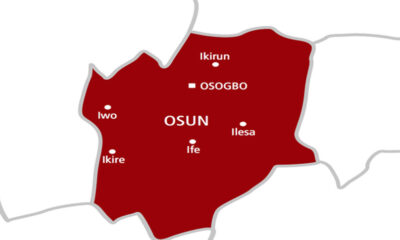
 News2 days ago
News2 days agoGroup protests alleged imposition of Imam in Osun
-
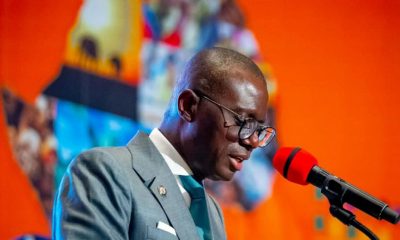
 News2 days ago
News2 days agoLagos GDP hits N41tn, earns N433bn from IGR
-

 Business2 days ago
Business2 days agoNaira depreciates again, trades at N1,402/$
-

 metro2 days ago
metro2 days agoWhy I killed my one-year-old son – Delta woman
-

 metro3 days ago
metro3 days agoBandits kill nine civilian JTF members, kidnap three in Sokoto







